New Zealand racing is set to continue behind closed doors but with the most extreme measures in its history to combat the spread of coronavirus.
And that will include jockeys being forbidden to ride at meetings in the island they don’t live in but with an unheard of 2kgs raising of all weights in all thoroughbred races to enable them to be healthier and less at risk of illness.
The heads of all three racing codes — thoroughbred, harness and greyhounds — are are hopeful the expected moves announced today will enable racing to continue so the industry can survive financially and not face stable or business closures which could force participants out of racing permanently.
At this stage no race meetings have been cancelled because of coronavirus restrictions and none are planned unless there is an increase in the threat or change in Government regulations.
But from Wednesday no members of the public will be allowed to attend race or trials meetings and there will even be severe restrictions on racing industry participants doing so, with only those working at that meeting allowed to attend.
That will mean trainers, jockeys or drivers, handlers and stablehands who usually attend meetings will not be able to unless they have specific duties that raceday.
That will definitely stay in place until April 13 and probably significantly longer.
“We will require trainers to tell us who will be coming to the races with their horses and then nobody else will be allowed,” said Harness Racing New Zealand boss Peter Jensen.
There will still be restricted numbers of raceday administration staff but increased security to ensure the new protocols are not breached.
Some of the restrictions will be harder to implement at the harness racing code’s two major tracks, Addington in Christchurch and Alexandra Park in Auckland, as both have restaurants on their tracks which cater for non-racing crowds seven days a week.
Alexandra Park bosses are still working through the specifics of how that will work with the Grand Park Restaurant, which is among the busiest restaurants in Auckland but could remain open as long as no racing industry participants were allowed in so it was treated as separate from the actual racetrack.
Decisions on what measures are put in place for it and other eateries at racetracks around the country during race meetings are expected tomorrow.
But the restaurants will be able to operate as normal, like any other eatery, outside when race meetings are being conducted at those tracks.
For racing bosses the main focus though is on maintaining horse and dog racing in this country. With all racing in New Zealand telecast live on Trackside and able to be shown online at the TAB website, industry bosses will be hoping punters will still engage with it and bet.
There is even potential for increased engagement as many other live sports are cancelled but even if that happens the overall impact on racing’s bottom line is going to be brutal.
The three codes, who have at times been at odds in the last year over the industry’s direction and market share distribution, having shown commendable unity with how they have approached the coronavirus restrictions and protecting their participants and racegoers.
Thoroughbred racing has implemented two new rules, both of which make sense, but one will be popular with jockeys and the other not so much.
Some jockeys are peeved by a new regulation meaning jockeys can not move between the two main island: so only South Island-based jockeys can ride at meetings there and North Island jockey can ride at meetings north of Cook Strait.
They can still travel between island for personal reasons but that can not accept rides at meetings held there.
But a move to raise all weights in all races by 2kgs from Friday is been roundly applauded.
Jockeys maintain their weights at often unhealthy levels so they can be available to ride as many horses as possible, some undergoing dramatic 1-2kgs weight loss in the day before a race meeting, called wasting.
That can lead to extreme dehydration and the regular depletion is unhealthy, obviously making jockeys more vulnerable to illness and making any infections, viral or otherwise, more dangerous.
So put simply, the raising of the weights scale by 2kgs for every horse in every race will allow jockeys to remain healthier.
Michael Guerin

 USA
USA Canada
Canada Australia
Australia New Zealand
New Zealand Europe
Europe UK / IRE
UK / IRE


